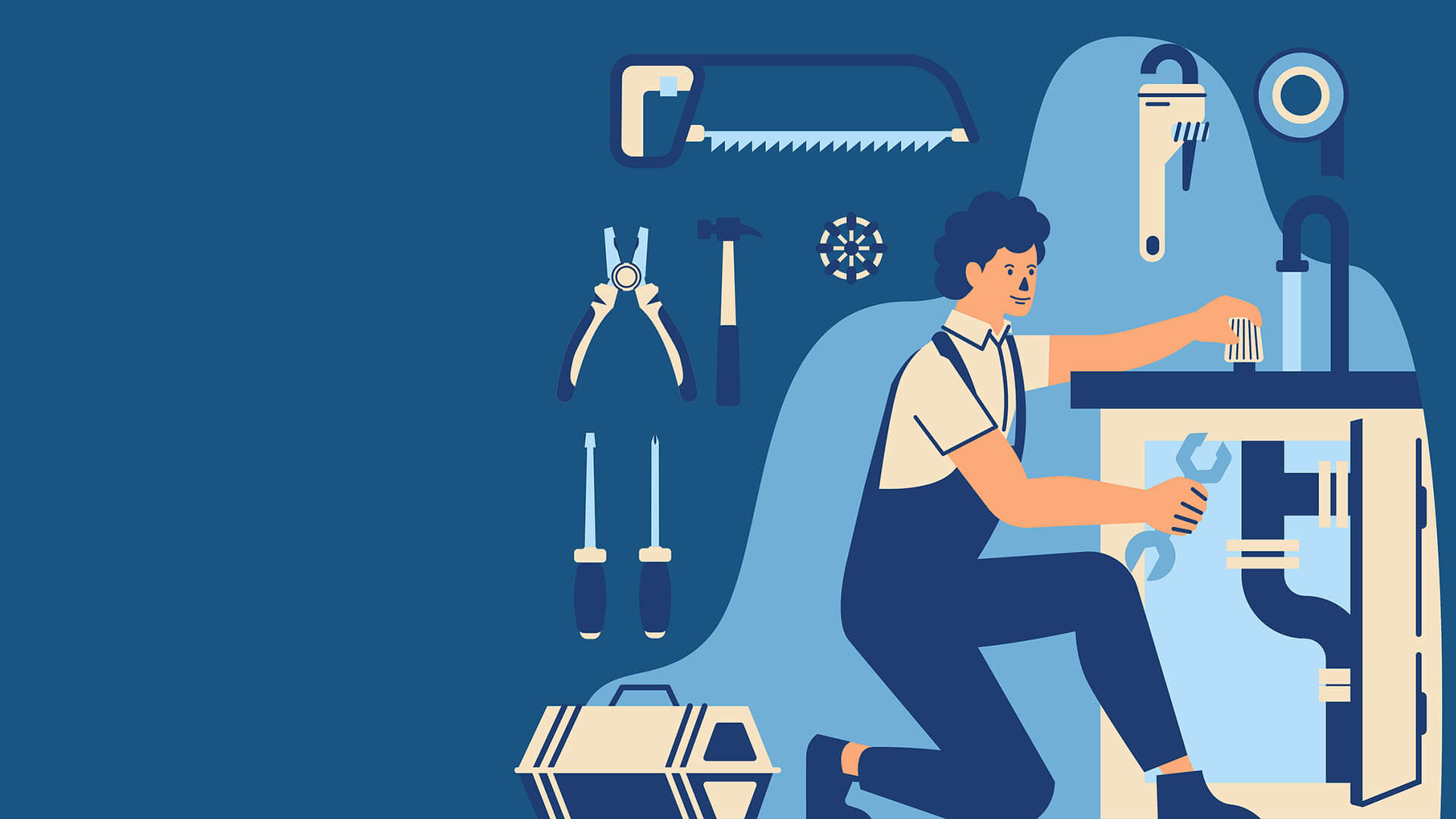Your toilet is clogged, and the water level is rising. It's a conundrum that many homeowners encounter from time to time: "Should I pay a professional plumber or try to fix this myself?" while they stand there contemplating the disaster.
The service of a professional plumber can be costly. But, attempting to repair a plumbing issue on your own can be a big hassle if you don't know what you're doing. Then what should a homeowner do?
To make an informed decision, let's compare the advantages and disadvantages of hiring a professional plumber versus doing it yourself.
The Pros of Hiring a Professional Plumber
The main benefit of choosing a professional plumber is that they have the knowledge and expertise to complete the work correctly the first time.
Due to their extensive experience, qualified plumbers are knowledgeable in their field. If something goes wrong, you don’t have to worry about making expensive mistakes or having to start over. In addition, a lot of experienced plumbers have insurance, which will protect your house in case of an accident.
The fact that a professional has access to specialist equipment and parts that you would find challenging to locate on your own is another benefit of hiring them. They'll be able to precisely and quickly detect any issues, which will ultimately save you time and money.
What to Look for When Hiring a Professional Plumber
1. In the U.S., a plumber should be certified and covered by insurance. Please be aware that plumbing is subject to varied laws depending on the state.
In Texas, a professional license requires at least four years of experience and graduation from an accredited program that has been approved by the state's licensing board. They must also adhere to the plumbing code of the state and pass a written exam.
In California, most professional plumbers must complete a minimum of four years of apprenticeship or training to obtain their license. The requirements for certification also include the following:
An approved course of study.
Passing a written test.
Following the state's safety and health regulations.
The Ritz plumbing los angeles ca is one of the many reliable plumbing service providers who underwent these rigorous certifications.
In Florida, there are two routes for an aspiring plumber to take to become a professional. They can either complete a certificate program offered at a vocational school or choose the full apprenticeship route, which is more comprehensive and takes longer but provides more knowledge and experience. The license requirements include the following:
Completing an approved course of study.
Passing a written exam.
Adhering to the state's plumbing code.
2. A professional plumber must have a good reputation for providing quality services to their customers. They must keep up with any new developments or changes in plumbing regulations to remain compliant.
3. A professional plumber must know how to read blueprints and construction plans to ensure proper installation and repair of plumbing systems. Also, they must be able to identify and resolve any plumbing system issues that may occur.
4. A professional plumber should also be knowledgeable about safety protocols and able to employ the appropriate safety equipment while working on any project.
The Cons of Hiring a Professional Plumber
Depending on how serious the plumbing issue is, hiring a professional plumber could cost you $50 to $200 per hour, or more. Moreover, specific parts may be needed for some tasks, which could raise the overall cost of the repair even further.
Additionally, when hiring professionals, homeowners are often forced into working within their schedule rather than their own, especially during emergencies where timing is critical. Also, some people find it difficult to trust someone else with their home repairs, making them hesitant about bringing strangers into their homes.
The Pros of Doing It Yourself
If cost is an issue for you, then doing it yourself can save you money in labor costs alone, especially if the repairs are minor enough for even a novice handyman or woman to tackle.
You'll also have complete control over when work gets done since there's no need to schedule appointments or wait around for someone else's availability. You won't have to wait around for someone else to fix issues that come up or emerge while repairs are being made.
The Cons of Doing It Yourself
Of course, doing it yourself has drawbacks as well. For example, unless you are already knowledgeable about plumbing jobs, attempting one on your own may end up costing you more money than simply hiring a professional!
There's always the potential for things like blocks caused by incorrect installation and other problems stemming from a lack of knowledge or experience with these types of projects that could be costly and dangerous if not addressed correctly and promptly.
Final Thoughts
Ultimately, deciding whether to hire a professional plumber vs. doing it yourself comes down to understanding both sides—the pros and cons of each option—and weighing them against your needs and budgeting accordingly!
If cost isn't much of an issue, then typically hiring professionals is recommended as there's less risk involved, but if finances are tight, then DIYing can help save some money. Just make sure that whatever route is taken, safety always comes first!





